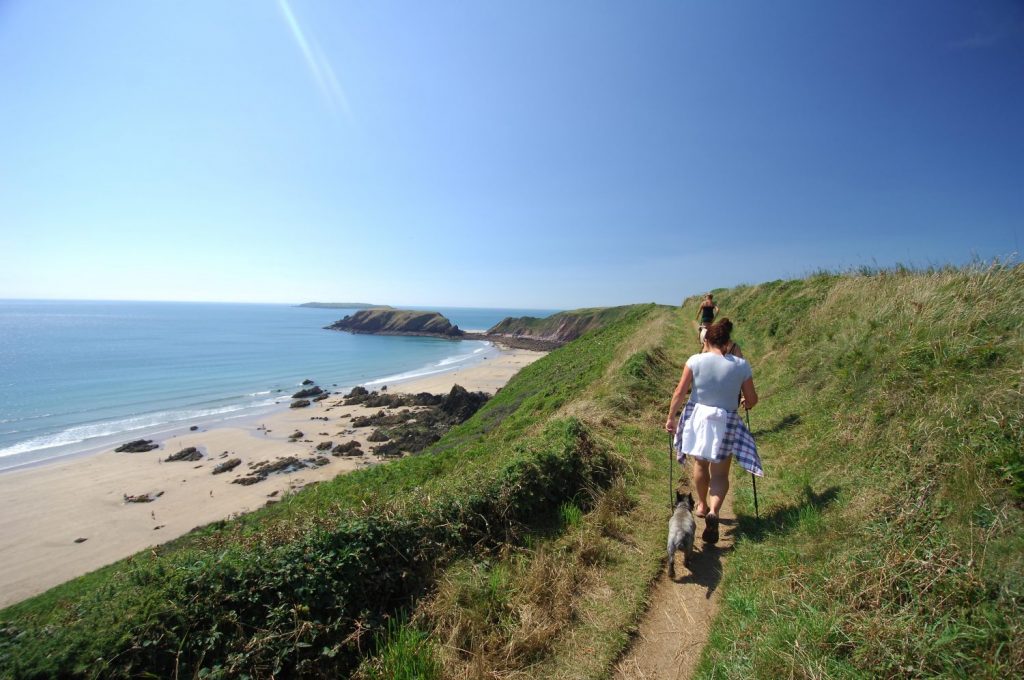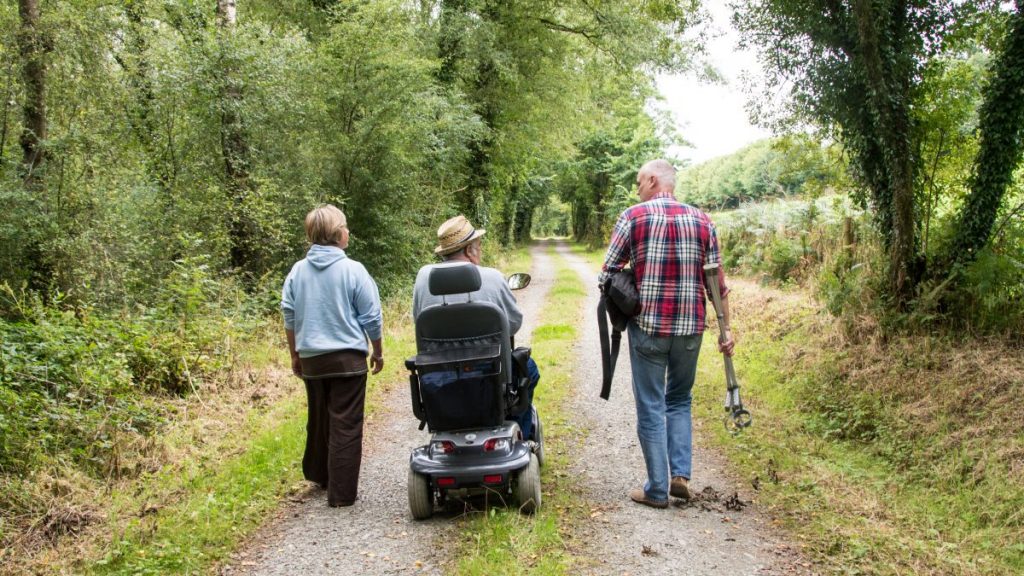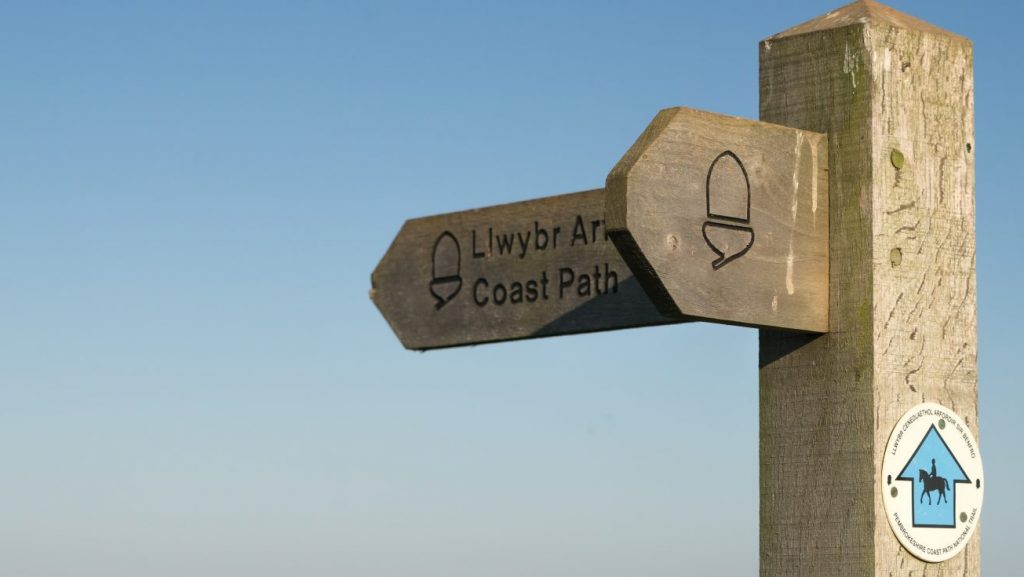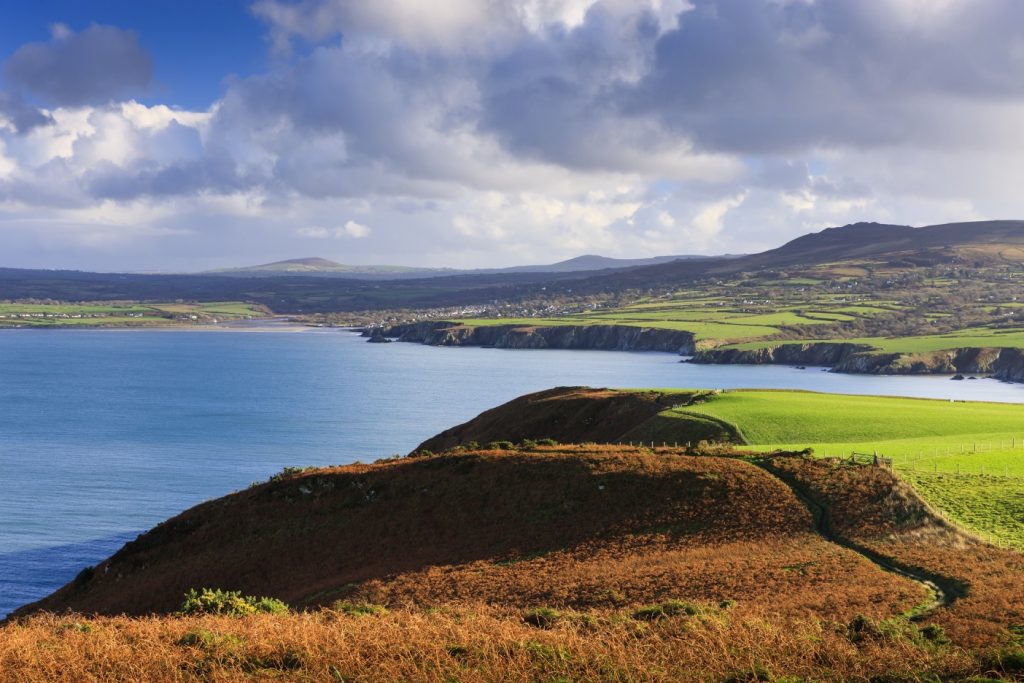DISTANCE/DURATION: 3.4 miles (5.4 km) 1 hour 30 minutes.
PUBLIC TRANSPORT: The operator of Service 404 (Strumble Shuttle) cancelled this service from 5 April 2023. In the meantime, the area is part of the North Pembrokeshire Fflecsi Bus scheme (opens in new window).
CHARACTER: Coastal, cliff edge walking, fields and livestock, farm lanes, muddy in places steep ascent/descent to Aberpwll (alternative route available), 160 yds (150 m) minor road walking.
LOOK OUT FOR: Castell Coch Iron Age fort (short detour), traditional Pembrokeshire cottages coastal/inland views, spring flowers and sea quarries at Aberpwll.
PLEASE NOTE: No car parking. Access to walk by bus only.
The coast between Penclegyr, near Abereiddy, and St David’s Head is incredibly rugged and wild. Take care while walking the coastal section of this route as in places the path surface is loose and stony.
The underlying structure of the coast, with its headlands and tiny coves like Aber-pwll, dates back to the Ordovician period around 450 million years ago. Then volcanic activity saw lava force its way through much older Pre-Cambrian layers.
Over millions of years the weather and the sea have eaten away the PreCambrian rocks far more effectively than the Ordovician.
From the higher ground at Tretio it all makes perfect sense – there are excellent views of the Ordovician high ground, including Strumble Head and Penberry.
Close to the route is Castell Coch, a weathered Iron Age fort. Did the people who lived there in the centuries before the Romans came to Britain enjoy good sea views like this one as much as we do today?
It certainly is an impressive panorama; on a clear day you can make out the Wicklow Hills 120km (75 miles) away in Ireland.
Much closer, the sea works away at three rock islets, Lechuchaf, Llechganol and Lechisaf, a mile or so offshore.
The landscape is dotted with traditional Pembrokeshire cottages and small family farms.
The boundaries of some the fields worked by today’s generation of farmers are unchanged in more than a millennium, and possibly longer.
Walking the coastal section of the route is a delight in late spring when the cliffs are a natural rock garden of wildflowers.
The most striking of the species that thrive on the thin soil is thrift or sea pink, which produces masses of pink, ball-shaped flowers in May.
Look out for seabirds like razorbills, fulmars, cormorants and shags, while peregrine falcons often hunt along this stretch of the coast.
Find this walk
Grid ref: SM783298
SAFETY FIRST!
- Take great care when on the Coast Path
- Stay on the path and away from cliff edges
- Wear boots and warm, waterproof clothing
- Take extra care in windy and/or wet conditions
- Always supervise children and dogs
- Leave gates and property as you find them



